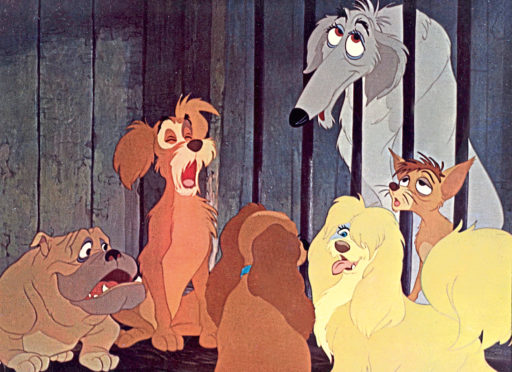
A dog is for life, not just for Christmas.
The Dogs Trust’s instantly recognisable slogan was first used way back in the 1970s, but it’s a timeless warning that’s, apparently, never been more appropriate.
According to the Scottish SPCA, rescue centres around the country have hit capacity, after a surge in demand for puppies during lockdown has caused many new owners to abandon their new pets after realising they can’t cope.
In addition to rehoming more than 3,000 pets, the charity has seen an increase in the number of calls made to its helpline about unwanted animals, as more than 136,000 people sought advice last year alone.
My family have always had dogs and I’m a big animal lover, so it makes me really sad to think there’s lots of pets sitting in draughty kennels waiting for a new home. But I can easily see why so many families have found it hard to transition from living with a pet in lockdown to coping with their everyday demands now that life is slowly returning to normal.
If a young pet spends its formative years surrounded by people, enjoying long walks and lots of attention, such as in lockdown, their behaviour or mood can quickly change when that normality is disrupted.
So, now that the kids have gone back to school and mum and dad have perhaps closed up their home office, dogs are going through a form of separation anxiety, which can see them trashing the house out of frustration, and constantly barking for attention.
I’ve actually experienced this first hand. In one of my previous homes, a neighbour kept their dog on a long leash in the garden, and the poor thing would bark all day long, starting the minute its owners left for work. Distressing for both dog and neighbours, yet the owners were probably totally unaware.
If issues like this occur, and the owners don’t have much experience of raising pets, is it any wonder their happy new addition quickly seems like more trouble than its worth? Dogs are incredibly sensitive and have such strong personalities, but I don’t think enough people stop to consider whether they have the right lifestyle or circumstances to care for one correctly.
What’s more, owners need to be responsible for their dogs in public places, too, and without proper training – a further consequence of lockdown puppy purchases – larger dogs can be quite scary for children and people who aren’t used to being around animals. And a polite “Don’t worry, they’re friendly” doesn’t do much to put the mind at ease when a four-legged foreigner is bounding towards you!
Our first family dog was a Dalmatian and then we had lots of Golden Retrievers after that, but my parents’ current dog, Penny, is a Black Retriever – named after the Penny Black, because my dad is an avid postal history collector.
She is rarely on a lead as she is very well behaved (especially now she’s 10 years old and becoming a bit slower) and I put that all down to her being trained properly from a young age. I only wish other people were as sensible.
Perhaps the Dogs Trust will need to change its slogan going forwards – something like, “A dog’s for life, not just for a pandemic”.

Enjoy the convenience of having The Sunday Post delivered as a digital ePaper straight to your smartphone, tablet or computer.
Subscribe for only £5.49 a month and enjoy all the benefits of the printed paper as a digital replica.
Subscribe